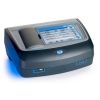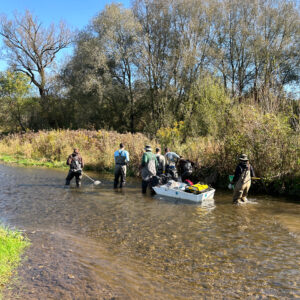Hach Simplified TKN (s-TKN) TNTplus Vial Test
Simplified TKN (s-TKN) method.
Total Kjeldahl Nitrogen TNTplus chemistry and your Hach spectrophotometer are engineered to simplify water analysis for accurate results, everytime.
Features
- Easy and safe handling
- No reagent blank necessary
- Automatic method detection
- Free ground shipping
- Expedited repair and warranty service
- Lifetime technical support
- More
Total Kjeldahl Nitrogen TNTplus chemistry and your Hach spectrophotometer are engineered to simplify water analysis for accurate results, everytime.
Simplified TKN (s-TKN) is method accepted for compliance reporting in many states. Please check with local regulators for acceptance in your state.
Hach Method 10242 is compliant for EPA wastewater reporting and gives three results for each test - Total Nitrogen, combined nitrate and nitrite, as well as TKN. Unique vial reagent system digests the sample at only 100 °C, increasing safety while eliminating ammonia contamination and the need to clean glassware. TNT880 has a range up to 16 mg/L TKN.
- Digestion Required: Yes
- EPA compliant: Yes
- Instrument: DR3900, DR6000, DR1900, DR2800, DR3800, DR5000
- Method: 10242
- Method Name: Simplified TKN (s-TKN™)
- Number of tests: 25
- Parameter: Nitrogen, Simplified Total Kjeldahl
- Platform: TNT plus™
- Range: 0 - 16 mg/L N
- Shelf Life: 17 months from production date
- Truecal: Yes
In The News
Monitoring and Facilitating Habitat Restoration Efforts in the Great Lakes
While human infrastructure, urbanization, and industrialization have advanced human societies, the natural environment has suffered due to constructed impediments and deteriorating architecture. In order to combat this degradation, habitat restoration programs across the US work to remove impairments and improve damaged waterways. [caption id="attachment_39162" align="aligncenter" width="940"] Barge electrofishing by state and federal employees prior to habitat restoration on Wiscoy Creek which is a tributary to the Genesee River. (Credit Thomas Hoffman)[/caption] Habitat Restoration Efforts in the Great Lakes Tom Hoffman, aquatic habitat restoration biologist in the Lower Great Lakes basin, directs restoration efforts within tributaries to Lake Erie, Lake Ontario, and the St.
Read MoreSustainable Fishing in Alaska: Protecting the Salmon Capital of the World through Research
In the far north, the Alaska Peninsula stretches away from the Last Frontier into the Pacific Ocean. A narrow strip of land dotted with freshwater lakes and intruded upon by ocean inlets–this unique region is intimately connected with the surrounding water. Nestled halfway down the peninsula's southern coast are the small villages of Chignik. The area has historically been home to the Aleut people and has been heavily reliant on fishing for centuries. Home to commercial and subsistence fishing today, Chignik continues to rely upon the salmon returns to the surrounding villages, which are supported by scientists working tirelessly to understand and steward these fish populations.
Read MoreNexSens X3 Data Logger Review
Extreme environments meet extreme design with the NexSens X3 Data Logger . The new logger offers the latest in real-time monitoring technology with wireless communication, a large plug-and-play sensor library and ultra-low power consumption, all in a waterproof marine-grade housing. The X3 is built to handle harsh weather, floods, high winds and rough seas, and it stands alone; no additional protective housing needed. With an operating temperature that ranges from -40°C to 70°C, the logger can withstand arctic environments and extreme heat. A conformal coating on the internal circuit board isolates it from moisture and humidity.
Read More







